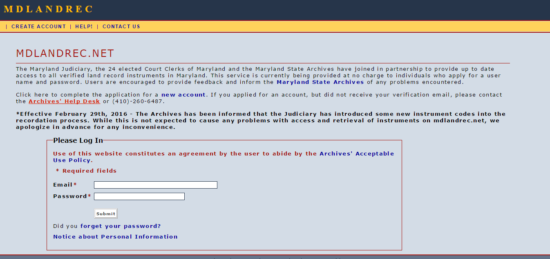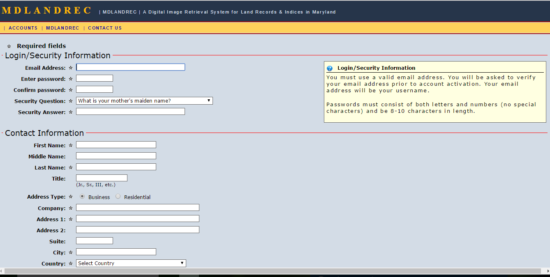Updated April 11, 2024
A Maryland deed is used to transfer ownership in real estate from one person (usually called the grantor, or seller) to another (usually called the grantee, or buyer). In Maryland a deed must include the name of the grantor and the grantee, the consideration paid for the property. In addition, there must be a preparer’s certification and an acknowledgment by a notary public or authorized court officer. The deed and the requisite taxes, filing fees, and intake sheet should be filed with the department of land records with the circuit court in the county in which the property is located.
Recording – All deeds must be accompanied by the Land Intake Sheet (see Instructions) and submitted to the Clerk at the Circuit Court in the County the property is located.[1]
Signing – All deeds must be certified by a notary or officer of the court. In addition, all deeds must contain a preparer’s certification, either an attorney or one of the parties to the deed can complete the certification.[2]
Deed Types (4)
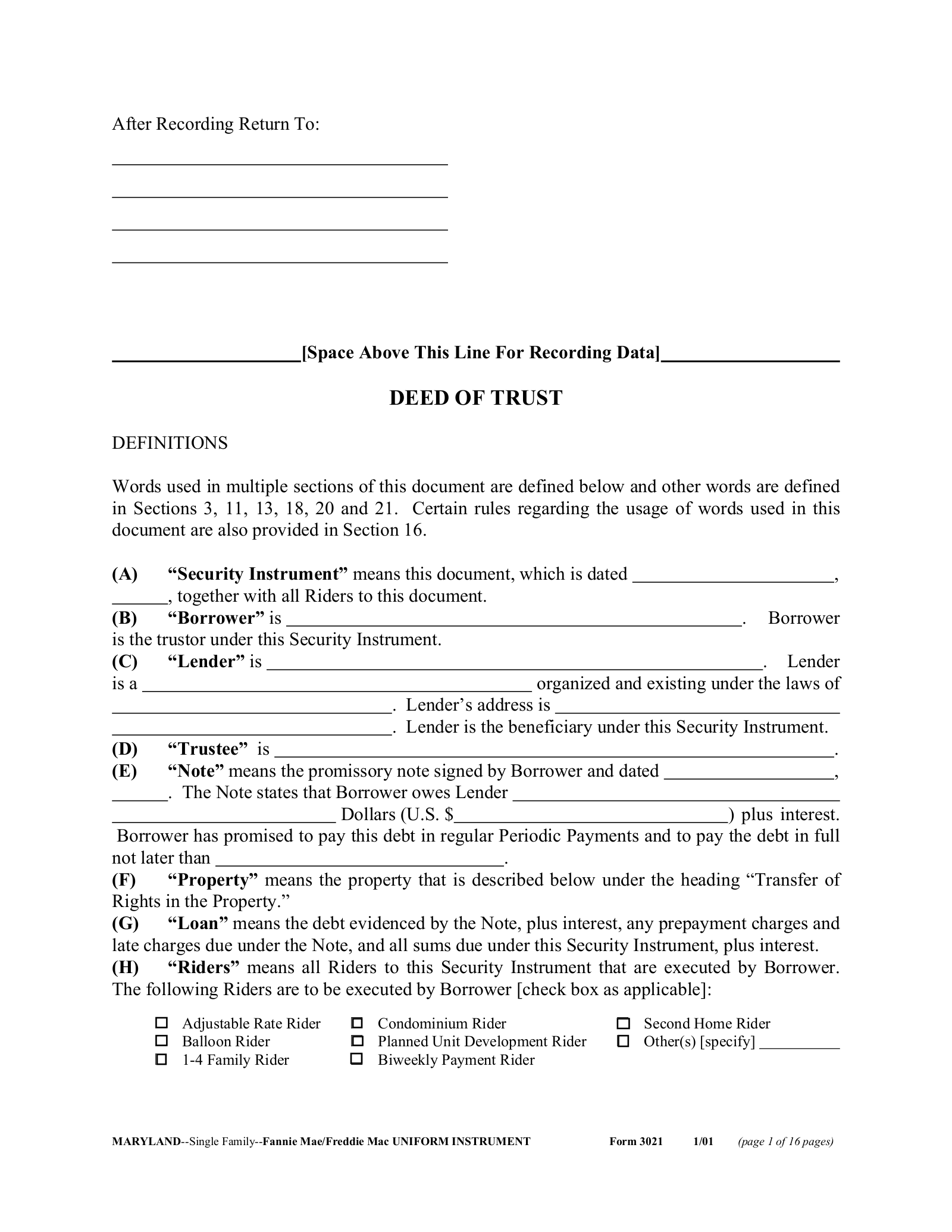 Deed of Trust – This is used to record a mortgage interest in the property. If the owner sells the property, this deed shows that the mortgage must be satisfied before the sale can go through.
Deed of Trust – This is used to record a mortgage interest in the property. If the owner sells the property, this deed shows that the mortgage must be satisfied before the sale can go through.
Download: PDF
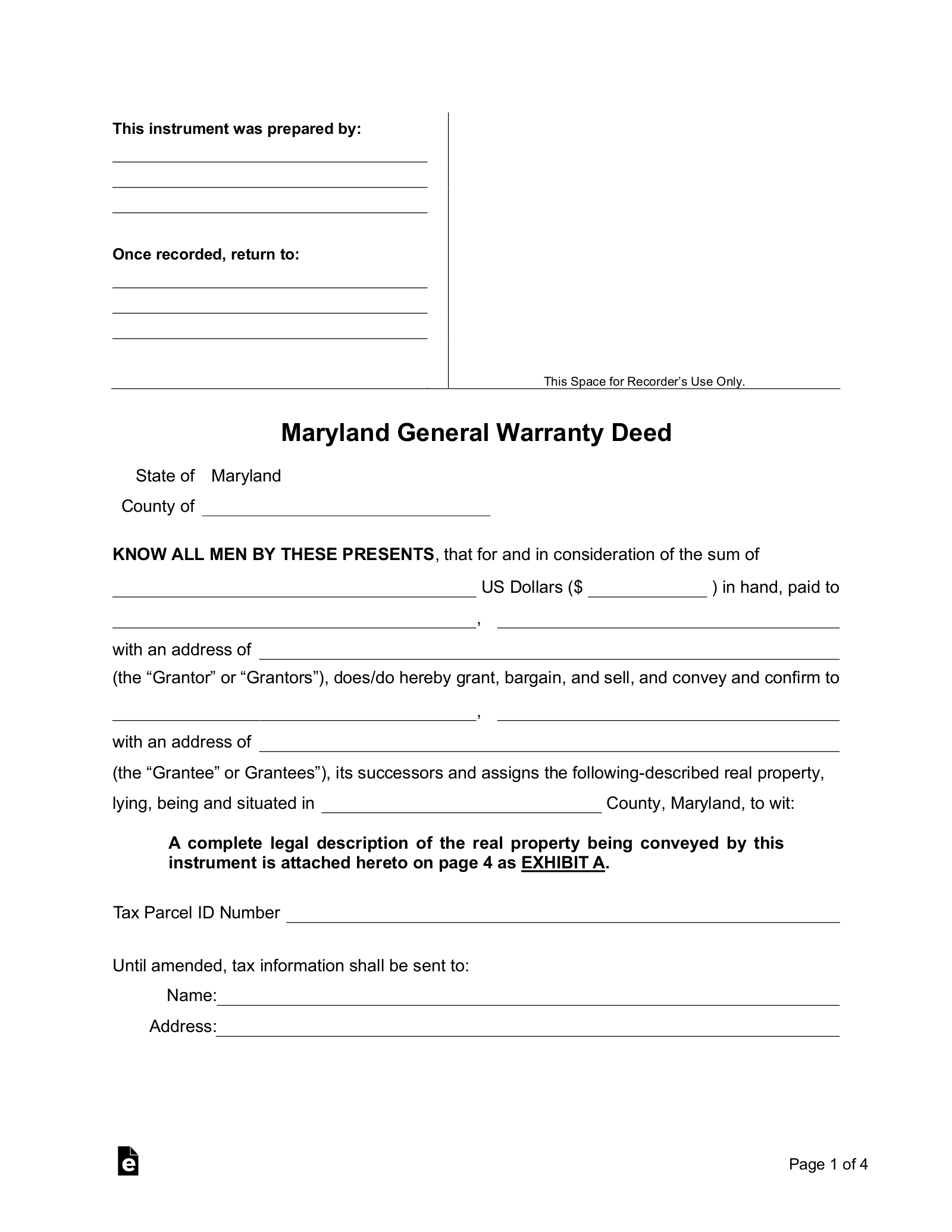 General Warranty – This type of deed transfers property from the seller to the buyer with a warranty from the seller guaranteeing that they have the authority and right to sell the property.
General Warranty – This type of deed transfers property from the seller to the buyer with a warranty from the seller guaranteeing that they have the authority and right to sell the property.
Download: PDF, MS Word, Open Document
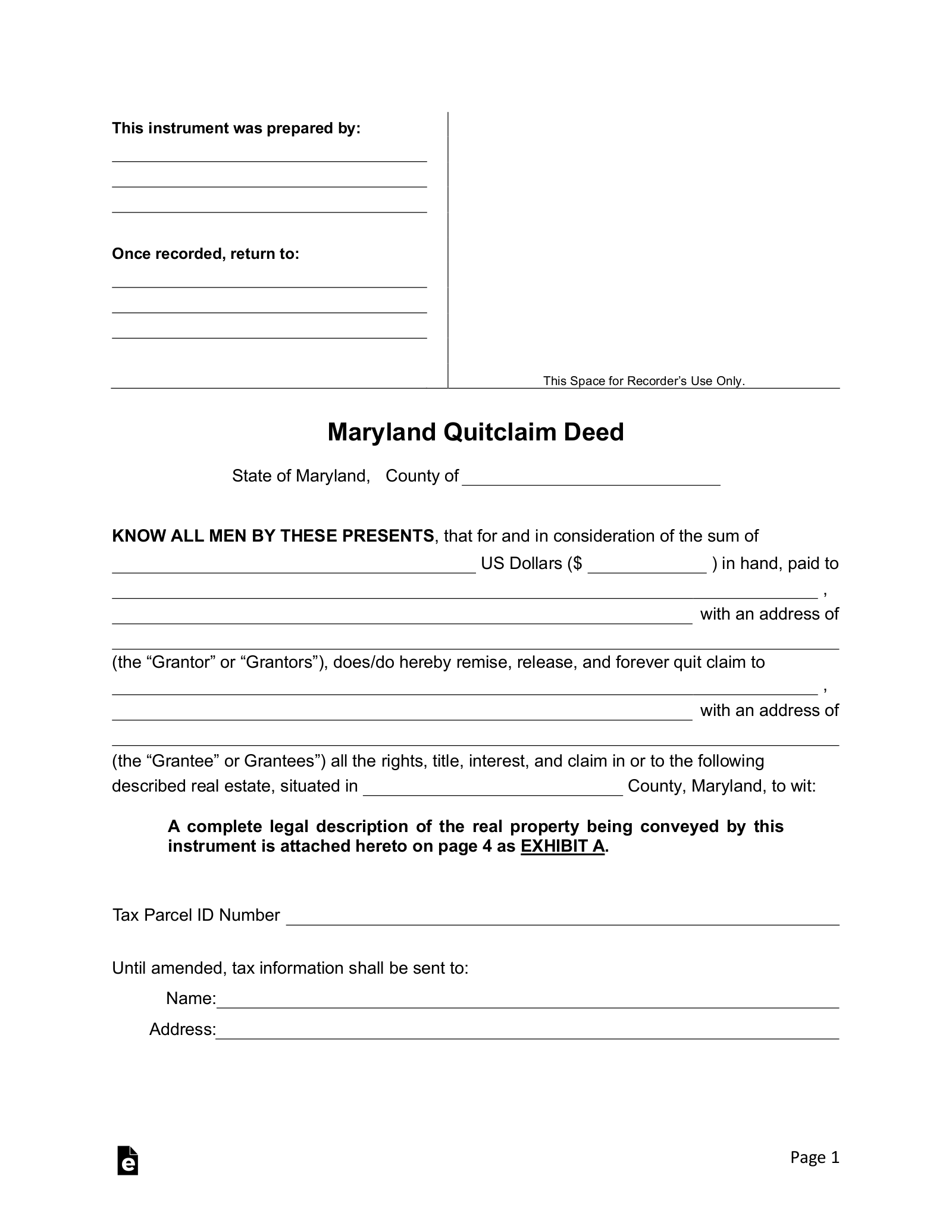 Quit Claim – This type of deed conveys property but without a warranty. A buyer agrees to purchase whatever the seller has, whether it be complete interest or no interest in the property.
Quit Claim – This type of deed conveys property but without a warranty. A buyer agrees to purchase whatever the seller has, whether it be complete interest or no interest in the property.
Download: PDF, MS Word, Open Document
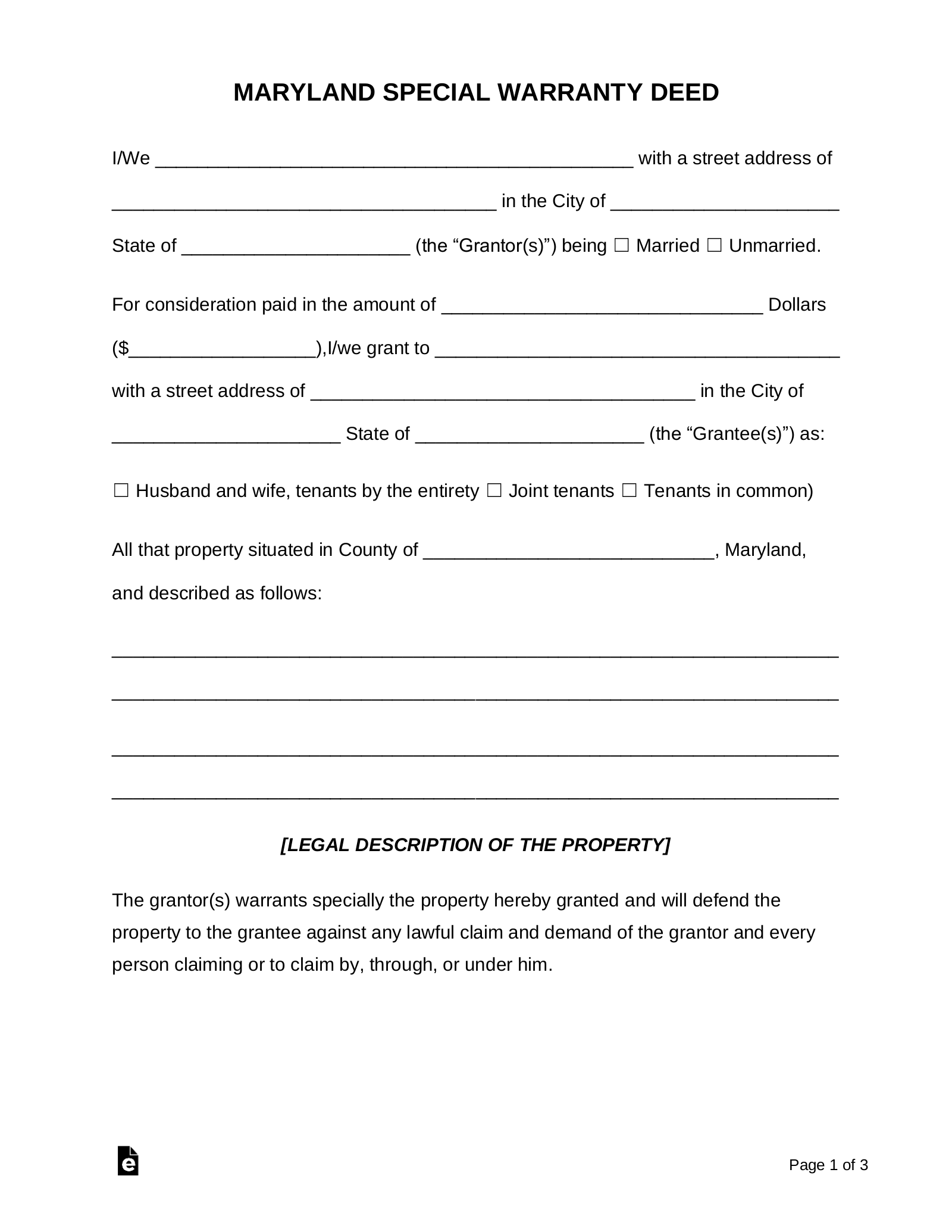 Special Warranty – This type of deed is used to convey property with a limited guarantee. The seller is certifying that they have not conveyed any interest in the property to anyone else while owning the property.
Special Warranty – This type of deed is used to convey property with a limited guarantee. The seller is certifying that they have not conveyed any interest in the property to anyone else while owning the property.
Download: PDF, MS Word, Open Document
Maryland Property Search (6 steps)
It is important, if you are the purchaser of real estate, to know the background information on the property. You will want to know if you have clean title. In Maryland, you can go to the land records department of the circuit court in the county in which the property is located to review the past conveyances of the property. Maryland has an online search engine for the entire state:
Step 1
Go to the State-Wide Land Records Site.
Step 3
Enter in your
- Email Address
- Enter password
- Confirm password
- Security Question
- Security Answer
- Contact Information
- First Name
- Middle Name
- Last Name
- Title
- Address Type
- Company
- Address 1
- Address 2
- Suite
- City
- Country
- Postal Code
- Phone No.
- Fax No.
Step 4
Check the box indicating that you agree with the terms.
Step 5
Click submit.
Step 6
Once you enter the site, you will want to make sure that you have the grantor’s name to begin the search. You will first look at the deed granting title to the seller, and then go back to the deed granting title to the person who sold to seller, etc. until you have gone back 50 years. Then you will come forward check all interest granted by each grantor until you reach the present. Using this method, you should be able to find any undischarged mortgages, easements and other interests granted in the property.

